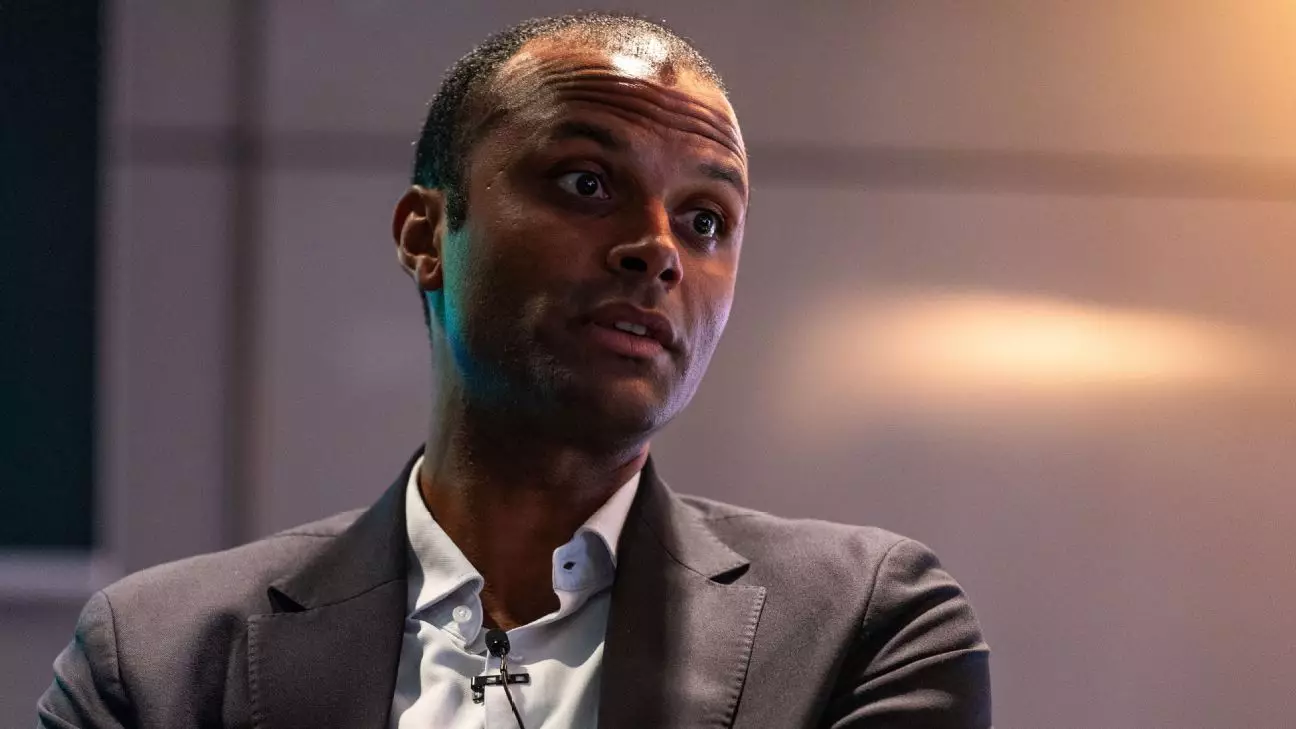In the relentless pursuit of success, the football world faces a pressing issue that threatens the longevity and wellbeing of its brightest talents. Maheta Molango, the chief executive of the Professional Footballers’ Association (PFA), has emphasized that elite players like Jude Bellingham, Bukayo Saka, and Phil Foden require substantial protection from burnout. As top athletes are pushed to their limits, the specter of injury looms larger than ever, raising vital questions about the sustainability of their careers. Players competing intensely throughout the season risk not only their current performance but also future opportunities in the sport.
The landscape of football has changed drastically in recent years, with fixtures piling up at an alarming rate. Players hardly get any respite, often participating in back-to-back matches, leading Molango to voice concerns over the physical and mental toll this relentless schedule inflicts. If the football community does not take immediate action to address these challenges, the implications for the sport’s future could be dire. This poses inherent dangers not only to athletes but to the quality and spectacle of football that fans cherish.
Injuries have become unavoidable companions for many modern players, exacerbated by the increasing demands of the fixture calendar. Notably, both Bellingham and Saka have faced time on the sidelines following their contributions to England’s successful campaign in Euro 2024. Their injuries resonate with fans and pundits alike, illustrating the alarming frequency at which even the most gifted athletes succumb to physical challenges due to overexertion. This issue is not confined to the Premier League, as evidenced by recent season-ending injuries to key players like Rodri and Dani Carvajal–both of whom were integral parts of their national teams’ respectively successful journeys.
Molango warns of the long-term ramifications stemming from this rigorous regime. If young stars like Bellingham, Saka, and Foden do not receive adequate protection and care, they may find their careers cut short, depriving both their clubs and the national team of their prodigious talent. As injuries pile up, so do concerns about the future viability of football. It raises a question: how many more aspiring stars will be lost to a schedule that deems them expendable?
The landscape of football is fraught with challenges, and the conversation around fixture congestion continues to revolve around necessary reforms. Amidst growing discontent, leading players are considering unprecedented actions, including strikes, to advocate for their rights and wellbeing. As FIFA prepares to host the Club World Cup—a 63-match marathon scheduled to unfold within mere weeks—Molango and others in the football community fear that this will only compound existing strains. The implementation of a new tournament raises legitimate concerns regarding player readiness and safety.
Rodri’s comments echo the frustration palpable among the players. With escalating fixtures leaving little room for recovery or preparation, it becomes increasingly clear that the disjointed scheduling fails to consider players’ welfare. The game’s governing bodies must recognize that placating commercial interests cannot come at the expense of athletes’ health. A collective stance may be the only way to ensure that player voices resonate in crucial discussions about the future of football.
Uniting for the Future
As the PFA and FIFPRO await the outcome of their legal action against FIFA, the urgency for a united front grows. Molango’s sentiments encapsulate the need for action: “When you have talents like Jude, Foden, and Saka, these young players need to be nurtured, not exhausted.” The emphasis is not solely on the athletes but also on preserving the heritage of English football, allowing these younger figures to blossom into all-time greats. Their potential should not be squandered due to a frantic, mismanaged schedule.
The delicate balance between enhancing commercial viability and ensuring athlete health has never been so precariously out of sync. However, it may be that a final straw such as a players’ strike leads to the necessary discussions and reforms football desperately needs. As players demand accountability from the football hierarchy, their collective actions could pave the way for a more equitable framework. Protecting today’s superstars is essential not just for safeguarding their careers but for ensuring the integrity and future enjoyment of the beautiful game itself. The decision-makers of tomorrow must heed these warnings—if they don’t, the beautiful game may eventually lose its most radiant talents.

